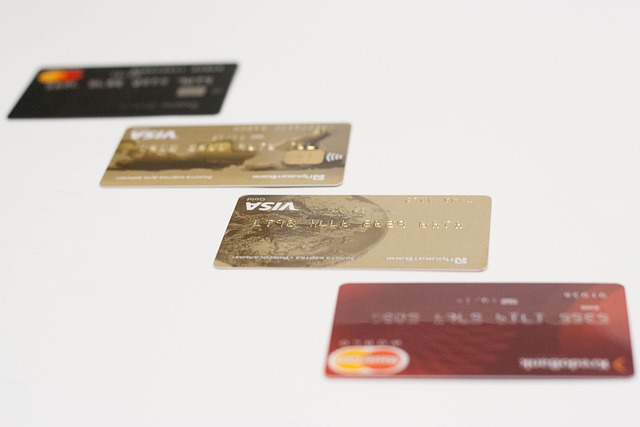Unlocking the Power of Credit Cards: A Comprehensive Guide
Credit cards can be a powerful financial tool, but only if you know how to use them effectively. This comprehensive guide goes beyond the basics to help you understand how to leverage your credit card for rewards, build a strong credit score, and manage your finances responsibly. Discover the strategies that can turn your credit card into an asset instead of a liability.

Choosing the Right Card for Your Lifestyle
Finding the perfect credit card requires understanding both your spending patterns and financial goals. Banks in Singapore offer various cards tailored to different needs—from cashback on everyday purchases to miles for frequent travelers. Before applying, evaluate your monthly expenses to identify where you spend most. If you dine out frequently, look for cards offering significant dining rewards. For frequent travelers, airline miles and lounge access might be more valuable.
Consider annual fees carefully—premium cards with higher fees often provide better benefits, but only if you’ll actually use them. The standard interest rate (APR) becomes relevant only if you plan to carry a balance, which financial experts generally discourage. Also examine supplementary benefits like travel insurance, purchase protection, and concierge services, which can provide substantial value beyond the core rewards program.
Maximizing Rewards and Benefits
Credit card rewards programs can significantly offset your everyday expenses when optimized properly. The key is strategic spending—channeling purchases through cards that offer the highest returns for specific categories. For instance, use a dining rewards card at restaurants and a separate card for grocery shopping if it offers higher cashback in that category.
Sign-up bonuses can provide immediate value, sometimes worth hundreds of dollars after meeting initial spending requirements. However, avoid increasing your spending just to chase rewards. Calendar-based promotions also offer opportunities for increased points or cashback during certain periods. Many Singaporean banks partner with specific merchants for exclusive deals—keeping track of these partnerships through your card issuer’s app or website can lead to substantial savings over time.
Building a Strong Credit Score Through Responsible Card Use
Your credit card behavior forms a significant portion of your credit history, directly impacting your credit score. Payment punctuality is paramount—even a single late payment can damage your score for years. Set up automatic payments to ensure you never miss a due date.
Credit utilization ratio—the percentage of your available credit that you’re using—also weighs heavily in score calculations. Financial experts recommend keeping this below 30% for optimal credit health. This means if your credit limit is $10,000, try to keep your balance under $3,000, even if you plan to pay in full each month.
Maintaining long-standing accounts demonstrates stability to potential lenders. Even if you rarely use certain cards, keeping them active with occasional small purchases can strengthen your credit profile. Just be cautious about applying for multiple new cards in a short timeframe, as each application typically generates a hard inquiry that temporarily lowers your score.
Smart Debt Management Strategies
Credit card debt can quickly become overwhelming due to compounding interest at rates typically ranging from 25-28% in Singapore. The minimum payment trap is particularly dangerous—paying only the minimum (often just 3% of the outstanding balance) can extend your repayment period by years and multiply the actual cost of your purchases.
If you’re carrying balances across multiple cards, consider consolidation strategies. Balance transfer promotions offering 0% interest for an introductory period can provide breathing room to pay down debt efficiently. Alternatively, debt snowball (paying off smallest balances first) or avalanche methods (targeting highest interest rates first) offer structured approaches to becoming debt-free.
For those struggling with significant debt, negotiating with card issuers is sometimes possible. Many banks have hardship programs that can temporarily reduce interest rates or waive fees for customers experiencing financial difficulties.
Protecting Your Finances From Fraud and Security Breaches
Credit cards offer superior fraud protection compared to debit cards or cash. Most Singaporean card issuers implement zero-liability policies, meaning you’re not responsible for unauthorized charges if reported promptly. Still, vigilance remains essential—monitor statements regularly and enable transaction alerts to catch suspicious activity immediately.
Digital security measures like virtual card numbers for online shopping can add an extra layer of protection. These temporary numbers link to your actual account but limit exposure if compromised. When traveling, notify your card issuer in advance to prevent legitimate transactions from being flagged as suspicious.
Remember that legitimate banks never request sensitive information like PINs or CVV codes via email or text. Be especially cautious of phishing attempts that mimic official communications—always access your account through the official app or by typing the web address directly rather than clicking links in messages.
Credit Card Costs and Comparisons
Different cards carry varying costs and benefits that should align with your financial needs and usage patterns. Understanding the complete cost structure helps ensure you select cards that provide net positive value.
| Card Type | Annual Fee Range | Typical Rewards | Notable Features |
|---|---|---|---|
| Basic Cards | $0-$30 | 0.3-1% cashback | Low entry requirements, minimal benefits |
| Cashback Cards | $30-$200 | 1.5-5% category-specific cashback | Category spending bonuses, quarterly or monthly caps |
| Miles Cards | $150-$550 | 1.2-4 miles per dollar | Airport lounge access, travel insurance, miles never expire |
| Premium Cards | $300-$1,200 | 2-5% equivalent value in points | Concierge services, exclusive event access, priority reservations |
| Secured Cards | $0-$50 | Minimal or none | Credit-building features, lower credit limits |
Prices, rates, or cost estimates mentioned in this article are based on the latest available information but may change over time. Independent research is advised before making financial decisions.
Conclusion
Credit cards can be powerful financial tools when used with knowledge and discipline. By selecting cards that complement your lifestyle, maximizing their rewards programs, maintaining healthy credit behaviors, managing debt proactively, and staying vigilant against fraud, you can transform these payment instruments into valuable assets. The key lies in viewing credit cards not as free money but as strategic financial resources that, when managed correctly, can enhance your overall economic well-being while providing conveniences and protections unavailable through other payment methods.




